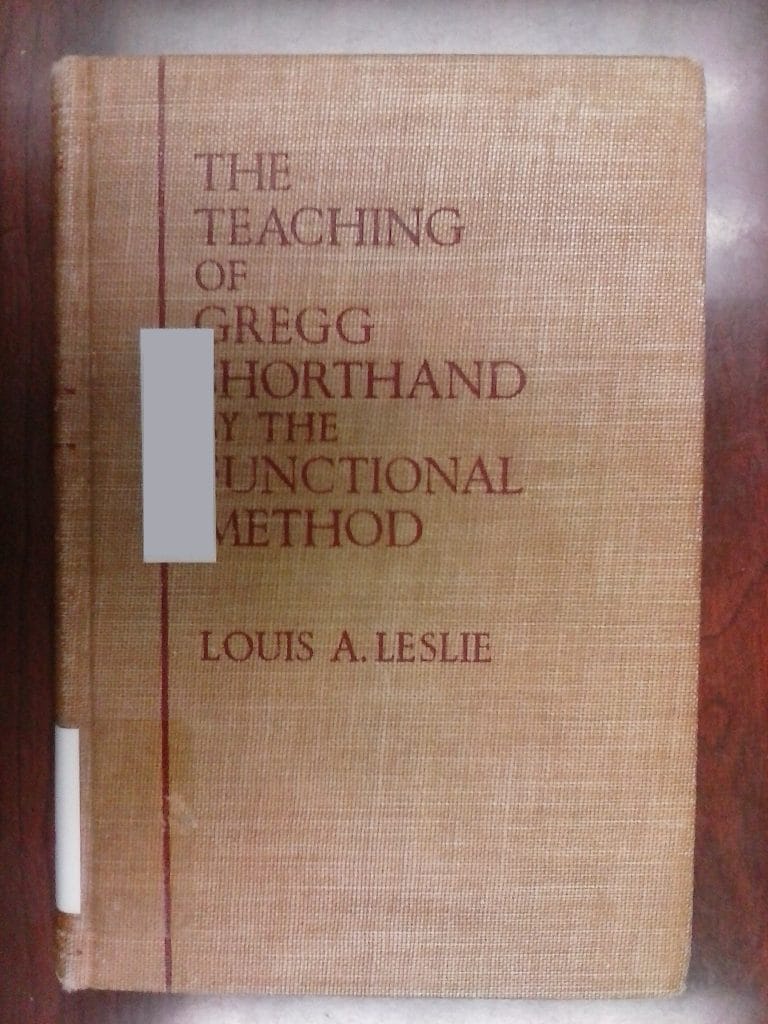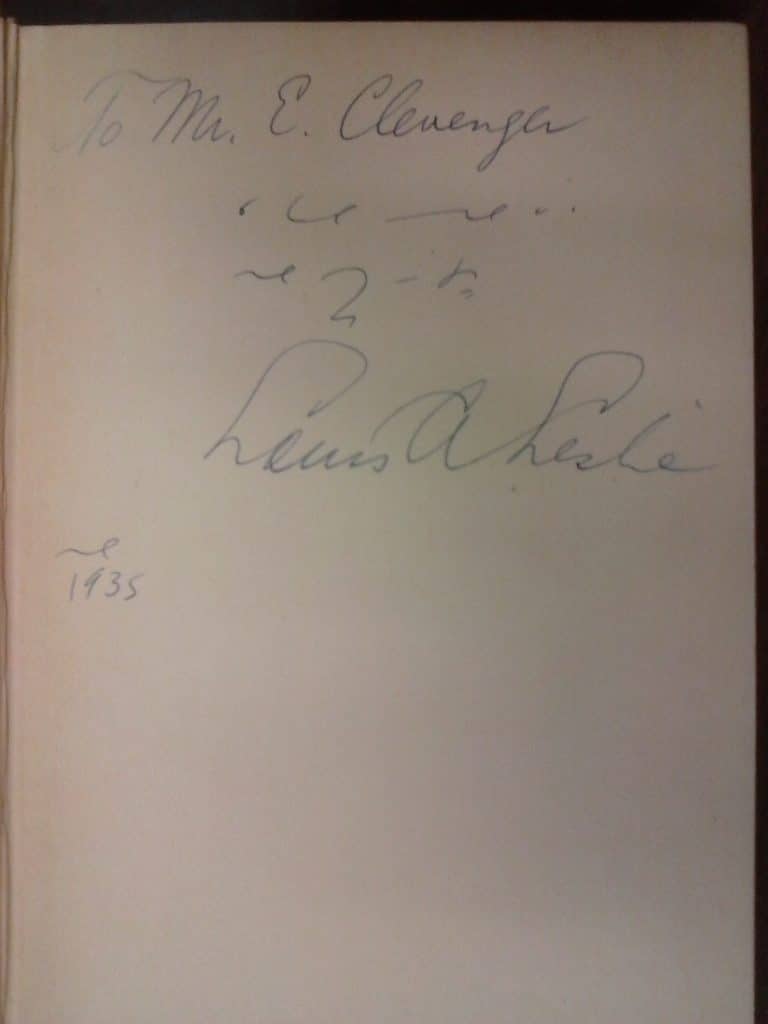Whilst looking for shorthand resources in our local library, I happened to run across the following book which appears to be an original from 1935. (Still in amazingly good condition)
The Teaching Of Gregg Shorthand By The Functional Method
Louis A. Leslie
Inside the front cover it has a brief handwritten message from Mr. Leslie, which I’ve attached as an image in this post.
I have no idea how common such an inscription might actually be, but I thought it was neat seeing actual writing from “Mr. Shorthand” himself back in 1935, and thought I would share it here.


This is very cool! I'm glad (and surprised!) that your library hasn't tossed away the shorthand books, and even has this gem in its book collection (it is not a very common book). By the way, this book shows you how to study Anniversary Gregg using the functional method by using the regular Anniversary manual, the second editions of Graded Readings in Gregg Shorthand and Gregg Speed Studies, and the Fundamental Drills book (yes, it's possible). That's how Charles Rader, plate writer for the Gregg Shorthand books, learned Gregg. The book was published in 1935, before the two-volume functional method books were published.
Regarding inscriptions, you may find this post interesting, .
.
I, too love seeing inscriptions, especially authors’ names. Even owners’ names in shorthand books (especially if from the 1800s) sparks my imagination. I too, Carlos, had the same thought about the library still maintaining the shorthand book in its collection and only last week I had the same experience. I teach a revision class for retired stenos and one new class member told me she borrowed her book from her local library. I expressed the same surprise. My experience is that such books were very quickly disposed of. I was fortunate when working in a secondary college when shorthand was dropped from the syllabus that I was offered all the resources, which started my collection.
Wow, Carmel! It's so great you were able to rescue that material!
Glen, be sure your library knows the value of this book. It's not uncommon for libraries to toss valuable old books in abstruse subjects out of ignorance. I can think of two examples just off the top of my head.
(1) My childhood library decided in recent decades to rid itself of all foreign language books. Among them was a translation of The Tale of Peter Rabbit into Welsh which now sells on the used book market for over $100 when in very good condition (as theirs was).
(2) My local library traded out an old copy of Darwin's The Expression of Emotions in Men and Animals for a new one. But the photos in the old one were Woodburytypes, while those in the new one were very inferior half-tone reproductions. (Fortunately they sold the old copy instead of discarding it, and one of my friends bought it.)
On the brighter side, a person in our community donated about fifteen shorthand books to our library. They didn't want them, but one of the librarians knew of my interest in shorthand, contacted me about them, and gave them to me.
Carlos:
Thanks for the explanation of the books purpose – Truth be told, I was a bit confused about where he was coming from. 😉
Also, thanks for pointing me to the post with the other inscriptions; I did enjoy looking though those as well.
And looking at the signature of "John R. Gregg", some of the strokes appear noticeably thicker, (especially the "G" in Gregg), in what I presume is in a Spencerian cursive sort of manner…
Carmel and LVW:
I'm a bit of a bibliophile as well, so I hate to think of getting rid of books, and I'm glad to hear you are able to preserve some. 🙂
However, I do sympathize with Libraries, which have to decide which of the nearly infinite book titles might serve their clientele best in their very finite amount of space.
As you may, or may not be aware, I believe many libraries use the "CREW" algorithm.
Which is comforting in that at least there is some method, and that it is not just completely random which books are removed.
And, of course, if any libraries want to send classics my way, I'll be happy to have them.
You're welcome!